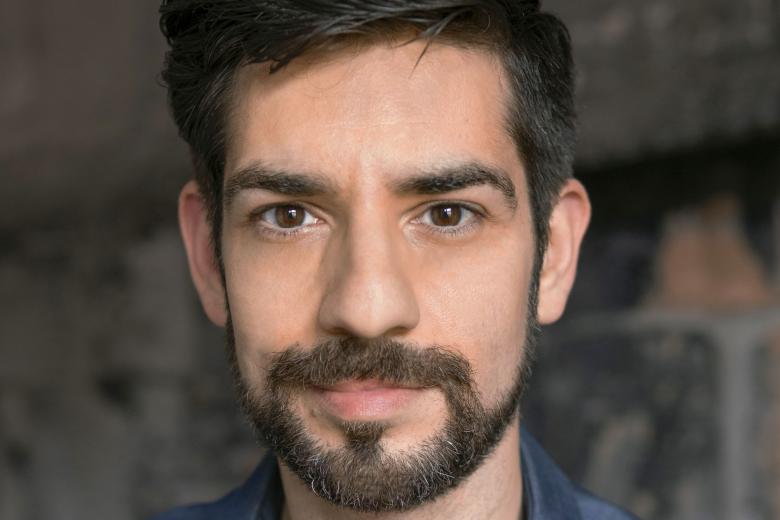Call for Projects, Workshops and Papers: Fail Better: Sharing Challenges and Learning in Classical Music Innovation.
Maastricht Centre for the Innovation of Classical Music Dates: 27–28 March 2020
Main venue: Conservatory Maastricht, the Netherlands.
Innovation in classical music is happening everywhere, driven by musicians and orchestras around the globe. Although we tend to share our successes, there are few spaces to reflect on the challenges, obstacles and potential risks that we encounter in innovative practices. Through sharing these we believe that valuable learning opportunities can be created.
Following from the success of the first international symposium of the Maastricht Centre for the Innovation of Classical Music in March 2019, which was attended by 103 delegates, we would again like to invite practitioners; music educators and students; orchestral musicians, directors and administrators; as well as academic and artistic researchers to present innovative projects. Presentation of work in progress, as well as completed projects, is encouraged. In particular we seek to reflect on how obstacles and setbacks can trigger learning processes. The symposium aims to stimulate a supportive and fruitful dialogue in order to better understand what ingredients lead to successful innovation in classical music.
Participants are encouraged to present in a manner that best reflects or expresses their practice, rather than simply describing it. Therefore, nontraditional and interactive learning-appropriate modes of presentation are encouraged, such as lecture-recitals, workshops, performances, project presentations or combinations of these, using, for example, video, audio, posters, or panel discussions.
We invite submissions relating to the following themes, though this is not an exhaustive selection. All presentations should be in English:
- Learning how to collaborate
- Engaging audiences, e.g. children, young people, or older people
- Learning as an institution and institutionalizing innovation
- Making music matter
- Exploring new musical contexts and spaces.
These themes can be explored with reference to any aspect of work in classical music, whether it be audience development, participatory projects, outreach and community work, new educational formats, empowerment of musicians, spatial/venue innovation, digital mediations, institutional learning, or cultural policy. Again, this list is not exhaustive.
Abstracts (max. 250 words) should be submitted to mcicm-fasos@maastrichtuniversity.nl by 8 December 2019. Please include the name of presenter(s)/author(s), a short biography and organizational or institutional affiliation. Also add presentation requirements: spatial setup, stage, technical equipment, etc. The committee will review and select projects based on their relevance, clarity of the project’s main learning opportunity, and originality. Moreover, the committee seeks to construct a program bringing together learning opportunities from all levels of experience and expertise. Students thus are particularly encouraged to attend.
For queries, please contact mcicm-fasos@maastrichtuniversity.nl
Programme Committee:
Prof Peter Peters, Director Maastricht Centre for the Innovation of Classical Music, Maastricht
University.
Dr Stefan Rosu, Intendant philharmonie zuidnederland.
Dr Ruth Benschop, Professor at Zuyd University of Applied Sciences, Research Centre Autonomy of the Arts and the Public Sphere.
Dr Joachim Junghanss, Director Conservatorium Maastricht.
Dr Neil T. Smith, Postdoctoral researcher, Maastricht University.
Karoly Galindo Molina, MA, Research assistant, Maastricht University.
The Maastricht Centre for the Innovation of Classical Music (MCICM) aims to study the dynamics of changing classical music practices and their societal contexts, and to actively shape classical music futures. The centre is a collaboration between philharmonie zuidnederland, Zuyd University of Applied Sciences, and Maastricht University. We combine academic research on innovation of performance practices with artistic research to renew classical music practices and music education in artistically
relevant ways.
Also read
-
Guido Bellenghi delivers a guest lecture on the EU as an emergency actor
Guest lecture: law, politics, and crisis response with Guido Bellenghi
-
17 January 2026: Book Presentation - Maastricht Letterheads
We are pleased to invite you to the book presentation 'Maastricht Letterhead', presented by MACCH affiliated researchers Bart Zwegers and Joris Roosen.
-
Costas Papadopoulos awarded Open Science NL grant
€1.5 million for Open Science Digital Infrastructure for 3D Scholarship